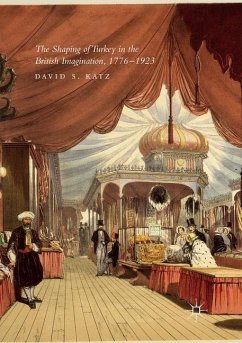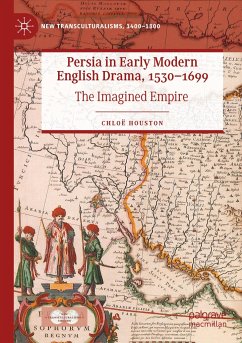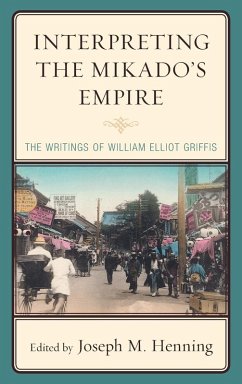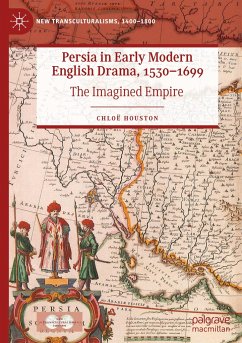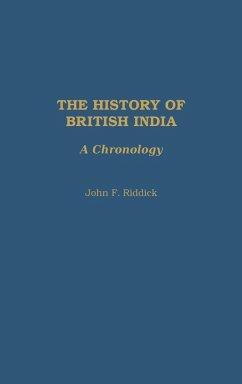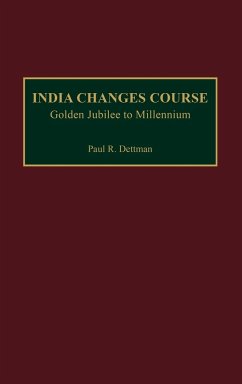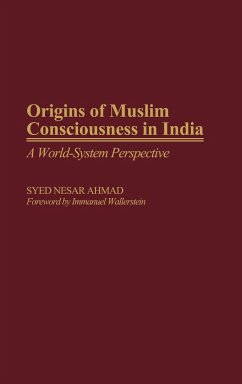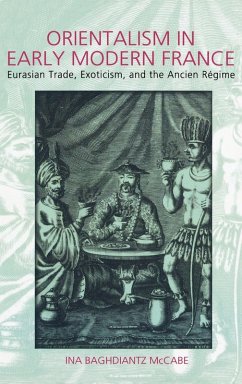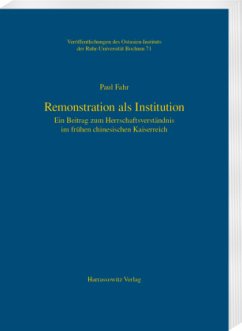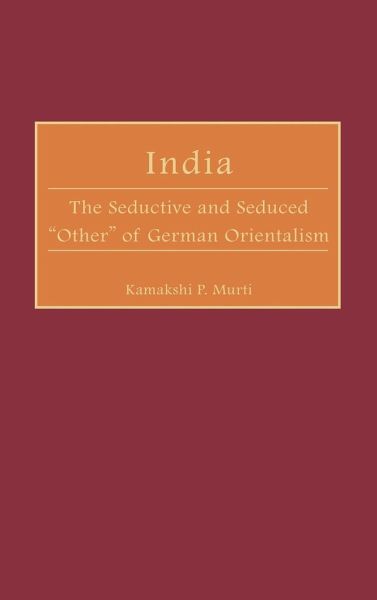
India
The Seductive and Seduced Other of German Orientalism
Versandkostenfrei!
Versandfertig in 1-2 Wochen
87,99 €
inkl. MwSt.

PAYBACK Punkte
44 °P sammeln!
Germans of various disciplines not only encouraged but actively framed a discourse that gendered India through voyeuristic descriptions of the male and female body. This study challenges the German's claim to an encounter with India projected on a spiritual plane of communion between kindred spirits and shows that such supposedly apolitical encounters are really strategies of domination. German participation in European Expansion can be perceived as collusion with the British imperialist administration inasmuch as it provided the latter with a justification for existing colonial rule and antic...
Germans of various disciplines not only encouraged but actively framed a discourse that gendered India through voyeuristic descriptions of the male and female body. This study challenges the German's claim to an encounter with India projected on a spiritual plane of communion between kindred spirits and shows that such supposedly apolitical encounters are really strategies of domination. German participation in European Expansion can be perceived as collusion with the British imperialist administration inasmuch as it provided the latter with a justification for existing colonial rule and anticipated future colonial activity. Despite the optimism placed in the post of post-colonialism, the continued presence of European Orientalism can be felt in the late 20th century, hidden under the mantel of global capitalism. Although Germany did not colonize India territorially, Germans of various disciplines not only encouraged but actively framed a discourse that gendered India through voyeuristic descriptions of the male and female body. German orientalist experiences of Hindu India have typically been excluded from post-colonial debates concerning European expansion, but this study challenges the German's claim to an encounter with India projected on a spiritual plane of communion between kindred spirits and shows that such supposedly apolitical encounters are really strategies of domination. German participation can be perceived as collusion with the British imperialist administration inasmuch as it provided the latter with a justification for existing colonial rule and anticipated future colonial activity. Murti sheds light on the role that missionaries and women, two groups that have been ignored or glossed over until now, played in authorizing and strengthening the colonial discourse. The intertextual strategies adopted by the various partners in the colonialist dialog clearly show that German involvement in India was not a disinterested, academic venture. These writings also betray a bias against women that has not been regarded, until now, as a key issue in the literature discussing Orientalism. Missionaries often actively fostered the British colonial agenda, while women travelers, even those who traveled as a means of escaping patriarchal structures at home, invariably abetted the colonizer. Despite the optimism placed in the post of post-colonialism, Murti concludes that the continued presence of European Orientalism can be felt in the late 20th century, hidden under the mantel of global capitalism.



